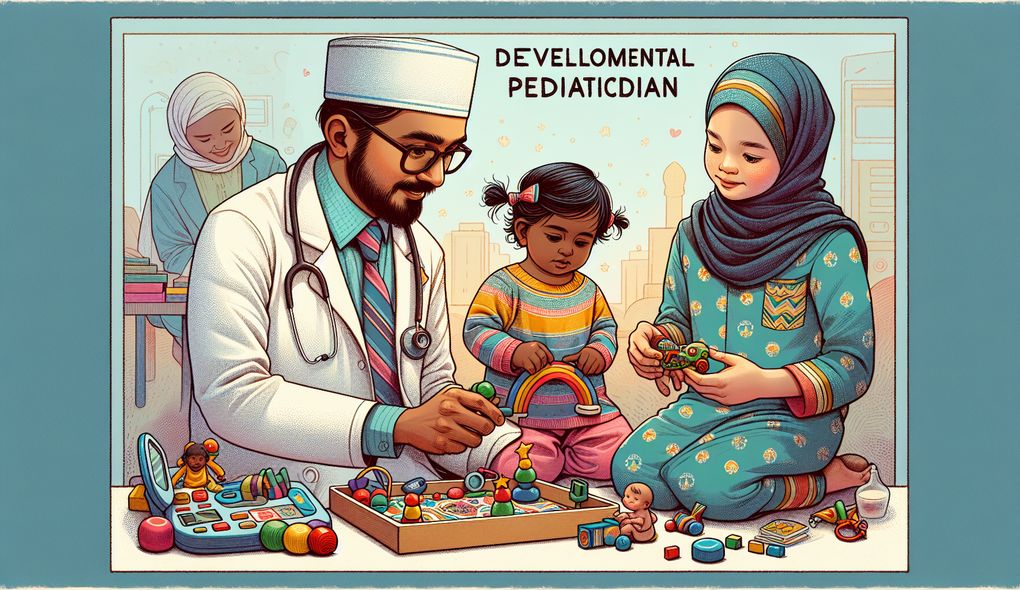How do you handle the ethical challenges that may arise in the practice of developmental pediatrics?
INTERMEDIATE LEVEL

Sample answer to the question:
When it comes to handling ethical challenges in the practice of developmental pediatrics, I prioritize the well-being and best interests of my patients. I believe in maintaining open and honest communication with parents and caregivers, ensuring that they understand the diagnosis and treatment options available. I also adhere to strict confidentiality guidelines and respect the privacy of my patients and their families. Additionally, I engage in continuous professional development to stay updated on the latest ethical standards and guidelines in developmental pediatrics.
Here is a more solid answer:
In the practice of developmental pediatrics, ethical challenges can arise in various forms. When faced with such challenges, I adhere to a set of core principles. Firstly, I prioritize patient autonomy, ensuring that children and their families are actively involved in shared decision-making processes. This involves explaining diagnostic findings, treatment options, and potential risks and benefits in an understandable manner. Secondly, I maintain strict confidentiality and respect the privacy of my patients and their families, ensuring that their personal information is securely protected. Thirdly, I commit myself to ongoing professional development, actively seeking opportunities to enhance my knowledge of ethical guidelines and best practices in developmental pediatrics. This includes attending conferences, participating in case discussions with colleagues, and staying updated on relevant research and literature. By actively engaging in self-reflection and continuous learning, I can address ethical challenges with a well-informed and thoughtful approach.
Why is this a more solid answer?
The solid answer expands on the candidate's approach to handling ethical challenges in developmental pediatrics. It demonstrates an understanding of core ethical principles such as patient autonomy, confidentiality, and continuous learning. The answer is more comprehensive and provides a clearer picture of the candidate's experiences and knowledge in this area. However, it could still benefit from specific examples or anecdotes to further illustrate the candidate's ethical decision-making process and experiences.
An example of a exceptional answer:
Handling ethical challenges in developmental pediatrics requires a multifaceted approach that encompasses several key aspects. Firstly, open and effective communication is essential. I strive to establish trust and rapport with children and their families, ensuring they feel comfortable discussing their concerns and preferences. This enables shared decision-making and empowers families to actively participate in the care process. Secondly, I prioritize the principles of beneficence and non-maleficence, always acting in the best interest of the child while avoiding harm. I carefully evaluate potential treatment options, considering the child's unique needs, cultural backgrounds, and available resources. Thirdly, I recognize the importance of cultural sensitivity and diversity in ethical decision-making. I am mindful of cultural differences and beliefs, adapting my approach accordingly to respect and honor each family's values. Finally, I am committed to self-reflection and ongoing education. I regularly participate in ethics training workshops, engage in case discussions with peers, and collaborate with ethics committees to ensure that my practice aligns with the latest ethical standards and guidelines. By following these principles, I can navigate ethical challenges with empathy, integrity, and professionalism.
Why is this an exceptional answer?
The exceptional answer goes above and beyond in addressing the ethical challenges that may arise in the practice of developmental pediatrics. It demonstrates a comprehensive understanding of the importance of communication, beneficence, non-maleficence, cultural sensitivity, and ongoing education in ethical decision-making. The answer also highlights the candidate's commitment to self-reflection and collaboration with ethics committees. It provides a well-rounded and detailed response that showcases the candidate's expertise and dedication to ethical practice. No further improvements are needed for this answer.
How to prepare for this question:
- Familiarize yourself with ethical guidelines and principles in developmental pediatrics, such as patient autonomy, confidentiality, and cultural sensitivity.
- Reflect on your past experiences and consider how you have approached ethical challenges in your practice. Think of specific examples or scenarios that you can discuss during the interview.
- Stay updated on the latest research, literature, and best practices in developmental pediatrics. This will demonstrate your commitment to continuous learning and staying informed about ethical considerations.
- Consider participating in ethics training workshops or webinars to enhance your understanding of ethical decision-making in healthcare.
- Practice active listening and communication skills, as these will be crucial in addressing ethical challenges and collaborating with patients and their families.
What are interviewers evaluating with this question?
- Ethical decision-making
- Communication skills
- Confidentiality
- Continuous learning

